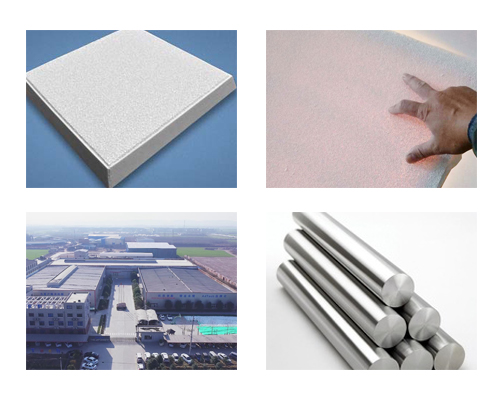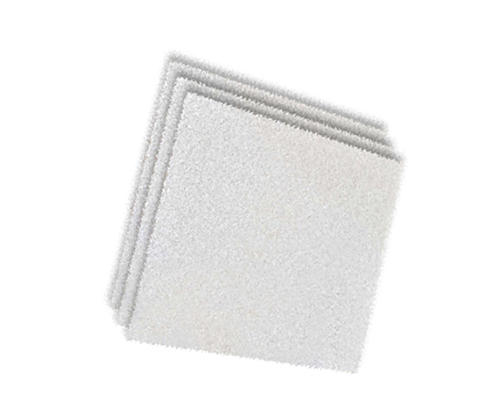Ceramic filter can effectively filter non-metallic inclusions and impurities in molten metal. Ceramic filters change turbulence and provide laminar and stable melt flow in the casting system, thereby reducing entrained gas, pinholes, mold corrosion, and sand defects. Therefore, filtration improves the microstructure uniformity, mechanical properties, machinability, surface quality and performance of the final product. Generally, ceramic filters help to produce higher quality products in a simple casting system, reduce production costs, and reduce casting defects and reject rates.
Ceramic foam filter is a special type of porous material with interconnected porous structures. The porous microstructure provides a large filtration surface area suitable for high capture efficiency. The alumina ceramic foam filter has a maximum operating temperature of 1500°C and is designed to filter aluminum and aluminum alloys.
Good chemical resistance, resistance to sudden temperature changes, and high thermal stability up to 1500 °C provide the best conditions for filtration in the casting process. The filter can be used in the filter box of the pouring system. The ceramic foam filter is produced using common replication technology (polyurethane polymer sponge method). The method includes immersing the polymer sponge in the ceramic slurry, then removing the excess slurry, drying, pyrolyzing, and burning out the polymer substrate, leaving a cross-linked porous structure, and sintering under appropriate atmosphere and temperature conditions The final densification.

Due to its excellent characteristics such as high-temperature resistance, strong chemical resistance, high porosity, and large surface area, foam ceramics are widely used in the filtration of molten metal to remove undesirable non-metallic inclusions in the melt. Reduce the turbulence of molten metal during mold filling, reduce the surface defects of castings, and significantly reduce the rate of casting rejects.
Foam ceramics have high mechanical strength, chemical stability, and high resistance to thermal shock and liquid metal flow shock even in high temperature environments. During the working process, there is no slag inclusion or breakage to ensure the quality and chemical composition of the molten metal are stable.
With large and stable metal flow, even if the inclusion content in the molten metal is high, the foam ceramic filter will not be blocked. With high dimensional accuracy, it can be automatically put into the production line.

